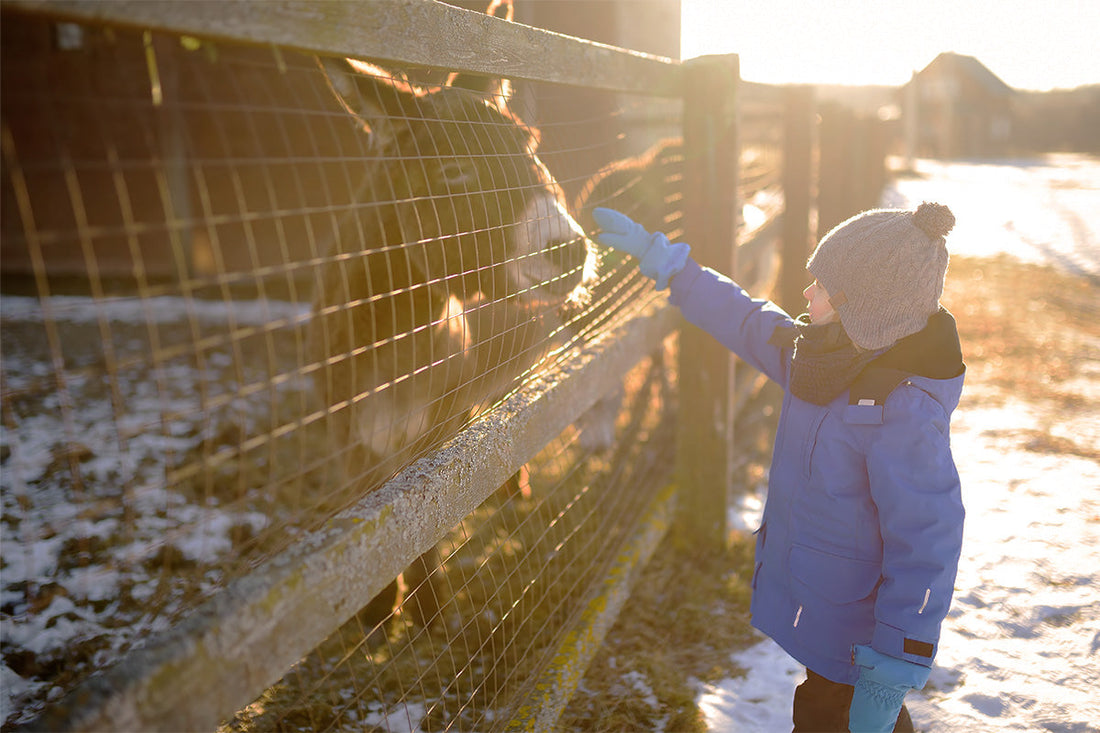
Seasonal Feeding Tips: Preparing Your Livestock for Winter
Share
As the days grow shorter and temperatures drop, preparing your livestock for the winter months becomes crucial for maintaining their health and productivity. Proper feeding practices during the colder season can make all the difference in keeping animals healthy, ensuring weight maintenance, and supporting reproductive success. Here are essential tips to help you navigate winter feeding and ensure your livestock thrive.
1. Evaluate Body Condition Before Winter
Before winter hits, it's important to assess the body condition of your animals. Thin livestock will have a harder time maintaining body heat and may struggle to cope with harsh weather conditions. Adjust their diet early to ensure they enter winter with adequate fat reserves. For cattle, sheep, and goats, aim for a body condition score (BCS) of 5-6 on a 9-point scale.
▰ Early intervention is key. Increasing feed intake now prevents costly health interventions later on.
2. Adjust Caloric Intake
During winter, livestock expend more energy to stay warm. Increasing their caloric intake is essential to maintain body heat and productivity. High-energy feed, such as grains or high-quality forage, should be introduced gradually to help animals adapt to the colder weather.
▰ For cattle and sheep, consider adding molasses or feed supplements rich in energy and fiber to help digestion in the colder months.
3. Optimize Forage Quality
Quality forage is the backbone of winter nutrition for most livestock. As pastures decline, hay and silage become essential. Aim for high-quality hay that meets the nutritional needs of your animals. Test your hay for nutrient content and adjust the supplementation accordingly. Over-reliance on low-quality forage can lead to weight loss and decreased productivity.
▰ At Medalist Feed, we grow fresh sprouts all year for use in our sprout pellets - giving you the freshest nutrient rich feed possible all winter long.

4. Ensure Adequate Water Supply
Water intake is often overlooked during winter, but it's just as important as feed. Cold weather can cause water sources to freeze, making it difficult for livestock to stay hydrated. Dehydrated animals may eat less and have poor digestion. Make sure water sources remain thawed or use heated water troughs to prevent freezing.
▰ Livestock tend to drink less cold water, so keep water between 37°F and 55°F for optimal consumption.
5. Provide Supplemental Minerals
In winter, access to fresh grass diminishes, leading to a potential shortage of essential vitamins and minerals. Ensure your livestock have access to mineral blocks or supplements containing salt, phosphorus, calcium, and trace minerals.
▰ Vitamin A, D, and E supplements are particularly important in winter, as animals may not receive enough sunlight to produce adequate vitamin D naturally.

6. Monitor Feeding Habits
Winter feeding routines should be closely monitored to prevent overfeeding or underfeeding. Animals that are not consuming enough feed will lose condition quickly, while overfeeding can lead to digestive problems such as bloating or acidosis, especially in grain-heavy diets.
▰ If feeding grain or concentrates, split feedings into smaller portions throughout the day to prevent digestive upset.
7. Shelter and Feeding Area Management
Wind, rain, and snow can increase the energy demands on livestock, so providing adequate shelter is essential. Design your feeding areas to be dry and accessible. Wet, muddy, or snow-covered feeding areas can lead to wasted feed and increased risk of illness.
